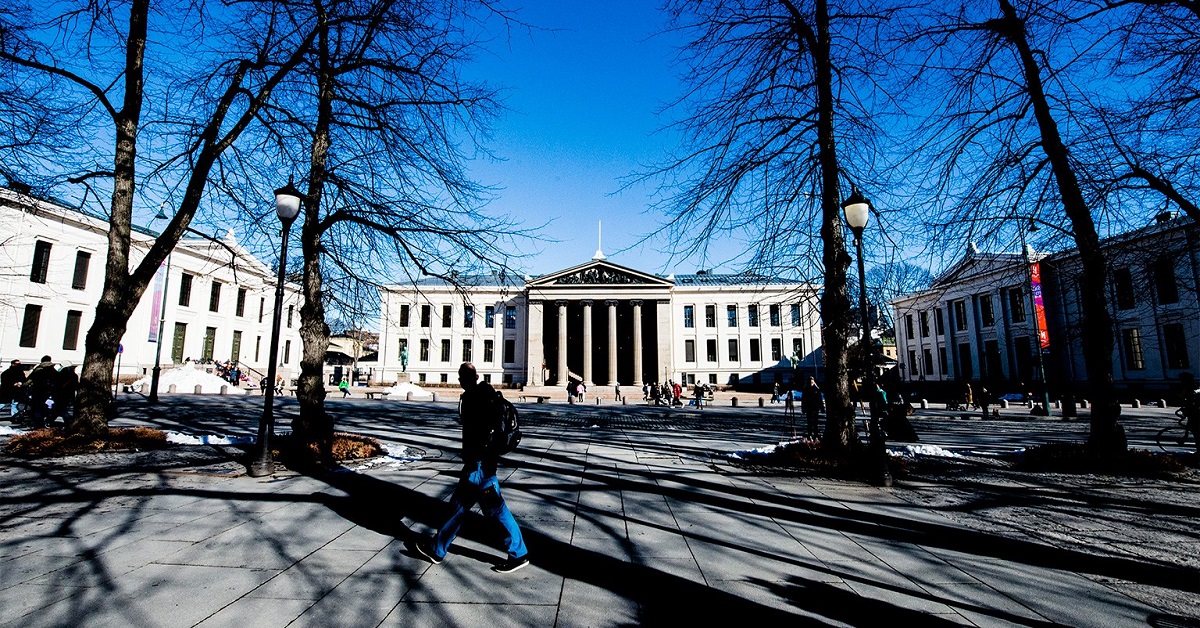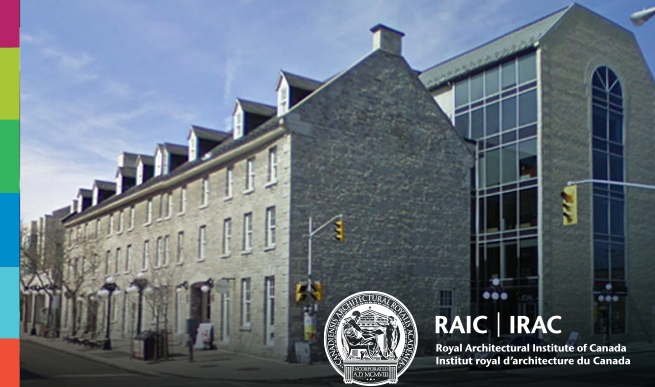
A permanent full-time position as associate professor is available in the section for Autonomous Systems and Sensor Technology (Autosens) at the Department of Technology Systems (ITS). The Department invites potential candidates to apply for the open position in cybernetics and autonomous systems with specialization in applied robotics.
We are seeking a candidate with clear scientific and technological visions, interest in applying an experimental approach, good educational and interpersonal skills, and abilities to establish and lead research projects, and with an interest in sustainability.
The introduction of autonomous robots will most likely be an important part of the necessary societal transformation into sustained resource management with vital contributions in sectors like development of clean autonomous transport systems, surveillance of future energy systems, space systems exploration, smart agricultural robotics, robotics for the elderly and improved welfare services, and the environmental surveillance of urban and rural areas.
General information about the position
One of the department’s focus areas is to demonstrate new methods, algorithms, and principles. It is therefore important that the successful candidate have an interest in experimental work and experience in developing demonstrators and prototypes. The candidate is expected to strengthen the research on control and performance of autonomous systems composed of interconnected components with multiple actuators and sensors that generate data to be processed in real-time.
It is also important that the candidate have research interests in artificial intelligence and machine learning methods applied to robotic control, like deep neural nets, bioinspired optimization and so forth.
The department wants to foster close cooperation with industry, and the successful candidate is expected to recruit master topics from research institutes and industry. The successful applicant may furthermore be required to take on other teaching duties and administrative tasks, by request from the Department or the Faculty of Mathematics and Natural Sciences.
Main tasks
The main tasks of the position are teaching and research. In detail this includes:
- Initiate research projects and actively attract external funding for new research projects
- Teaching at all levels, and supervision of Master and PhD students
- Participation in development and improvement of courses and study programs at the department
- Establish collaboration – interdisciplinary and beyond campus
- Academic administration
Qualification requirements
Required qualifications
- The successful candidate must have relevant education at the doctoral level and be able to document scientific qualifications in key areas of cybernetics and autonomous systems applied to robotics
- A strong scientific record is required. In the evaluation emphasis will be on the candidate’s scientific production in the last five years
- Pedagogical qualifications and teaching and supervision experience at all levels will be an important factor in the evaluation process and should be well documented in a teaching portfolio. The applicant should describe her/his qualifications in view of the Scholarship of Teaching and Learning (SoTL) framework which includes:
- Focus on student learning
- Clear development over time
- Researching approach
- Collegial attitude and practice
The successful candidate who at the time of appointment cannot document sufficient teaching qualifications (minimum formal requirement is a 200 hrs pedagogical programme), will be required to obtain such qualifications within a two-year period.
The candidate must have fluent oral and written communication skills. Applicants must demonstrate mastery of both English and one of the Scandinavian languages as working languages. If an appointee is not fluent in a Scandinavian language, the appointee will be required to learn sufficient Norwegian within a two-year period, to be able to participate actively in all functions the position may involve.
Courses are taught in both Norwegian and English and foreign language speakers are expected to be able to teach in Norwegian within a certain time after being appointed.
The research area for the position can include technologies referred to in the Ministry’s export control regulations, and the candidate must be eligible to obtain a security clearance.
Desirable qualifications
We are seeking a promising researcher with a track record backed up by high-profile demonstrated systems work (published artifacts, open-source projects, public demonstrations) and publications in the areas of autonomous systems. Experience within one or more of the following areas is desired:
- Control theory of mobile robots
- Autonomous systems design, development and experimentation
- Artificial intelligence methods applied to robotic control
Also, the successful applicant will initiate and lead research, supervise research students, teaching of students and examination work at all levels within the relevant subject areas, and will also participate in organizational, administrative, and structural responsibilities alongside the permanent staff of the group. Experience in attracting external research funding will be emphasized.
- Candidates should be able to establish, lead and conduct research projects, also as a collaborator. A track record in scientific and administrative leadership is an advantage, as well as participation in the acquisition of research grants
- International network, outreach activities, collegiality, and the ability to create a good working environment will be part of the evaluation
- The person appointed will be requested to take on some administrative duties. Hence such experience will be an advantage
- Personal suitability and interest for cooperation between the Department of technology systems, the research institutes at Kjeller, other departments at the Faculty of Mathematics and Natural Sciences, and with the private and public sectors
- National and international network of contacts
- Experience from industry or development projects
- Qualifications within research management, administration and dissemination
- Experience from attracting external research funding from the Research Council, the EU and other
Personal skills
In ranking of the applicants, the following personal qualifications and experience will be considered and given significant weight (the list is not in order of priority):
- Aptitude and interest in applying an experimental approach
- Ability to initiate collaborative projects
- Ability to create and contribute to a well-functioning, inclusive and productive research environment
- Ability to cooperate and communicate well with other members of staff
- Networking skills, ability to collaborate and conduct scientific leadership
- The successful candidate should have an international profile with respect to the above criteria
The candidate for this position will be selected based on excellence and fit with the section’s research profile.
We offer
- Salary according to pay grade Associate Professor (position code 1011) NOK 650 300 -776 900, per year depending on experience/seniority
- Attractive welfare benefits and a generous pension agreement, in addition to Oslo’s family-friendly environment with its rich opportunities for culture and outdoor activities
- The opportunity to apply for promotion to full professorship at a later stage
- A pleasant and challenging work environment
How to apply
The application must include:
- Application letter
- A research position paper (1–4 pages) describing the applicant’s vision and scientific ambitions for the nearest future
- A detailed CV, including a complete list of education, positions, pedagogical experience, administrative experience, project acquisition and coordination experience, and other qualifying activities
- Copies of educational certificates, PhD diploma, transcript of records and letters of recommendation
- A complete list of publications and academic merits and awards (if not included in the CV)
- Full text of up to 10 selected scientific publications the applicant wishes to include in the evaluation
- A portfolio containing documentation of capability of external fund raising and other qualifications the applicant wants to have considered
- A document discussing the importance, interrelation, and relevance of the selected papers for this position
- Educational portfolio of 3–6 pages documenting educational competence and experience, including a reflection note in which your own teaching practice and view of learning is anchored in the SoTL framework (focus on student learning, development over time, a researching approach and a collegial attitude and practice)
- List of reference persons: 2–3 references (name, relation to candidate, e-mail and phone number)
The application with attachments must be submitted in our electronic recruiting system; please follow the link “apply for this job”.
Please note that all documents should be in English (or a Scandinavian language).
Formal regulations
As a general rule an interview will be used in the appointment process, usually supplemented with a trial teaching session.
The basis for assessment will be the scientific production of the applicant, the teaching portfolio, pedagogical and educational qualifications, the applicant’s qualifications within leadership and administration, other qualifications as well as general personal suitability for the position. In ranking the competent applicants, the full range of qualifications will be considered and explicitly assessed.
Rules for appointments to associate professorships: https://www.uio.no/english/about/regulations/personnel/academic/rules-appointment-professor.html
Rules for the assessment and weighting of pedagogical competence for appointments to permanent academic posts which include teaching duties: https://www.uio.no/english/about/regulations/personnel/academic/rules-basic-pedagogical-competence.html
According to the Norwegian Freedom and Information Act (Offentleglova), information about the applicant may be included in the public applicant list, also in cases where the applicant has requested non-disclosure.
The University of Oslo aims to achieve a balanced gender composition in the workforce and to recruit people with ethnic minority backgrounds. Women are encouraged to apply.
The University of Oslo has an agreement for all employees, aiming to secure rights to research results, see: http://www.uio.no/english/for-employees/employment/work-results/
In addition, the University of Oslo aims for its employees to reflect the diversity of the population to the greatest degree possible. We therefore encourage qualified applicants with disabilities or gaps in their CV to apply for the position.
The University of Oslo will adapt the workplace to suit employees with disabilities.
Contact information
For further information please contact:
Professor Paal Engelstad, e-mail: paal.engelstad@its.uio.no
Associate professor Kim Mathiassen, e-mail: kim.mathiassen@its.uio.no
Head of Department Cecilie Rolstad Denby, e-mail: c.r.denby@its.uio.no; tlf. +47 22842221
For technical questions about the recruitment process, please contact:
HR Advisor Olga Holmlund e-mail: olga.holmlund@mn.uio.no
About the University of Oslo
The University of Oslo is Norway’s oldest and highest rated institution of research and education with 28 000 students and 7000 employees. Its broad range of academic disciplines and internationally esteemed research communities make UiO an important contributor to society.
The University of Oslo (UiO) is expanding the activity at Campus Kjeller to strengthen our education, research, and innovation in technology for a sustainable future. UiO is a well-ranked research university where the Department of Technology Systems at Kjeller (ITS) is focused on applied research in sustainable energy, autonomous systems, space, and security. At Kjeller, ITS is co-located with the Norwegian Defense Research Establishment (FFI) and the Institute for Energy Technology (IFE), which both offer rich opportunities for collaboration. ITS also has a range of interdisciplinary research collaborations that include the UiO Blindern Campus and Oslo Science City, as well as many other national and international institutions and industries.
ITS offers several master level programmes, alone and jointly with other departments: Renewable energy systems, Cybernetics and autonomous systems, Robotics and intelligent systems, and Information security. ITS also hosts the Centre for Space Sensors and Systems (CENSSS), which incorporates operation of an instrument on the NASA Perseverance rover on Mars. A new master program in Space systems is in the planning stage.
The department currently has 9 permanent scientific staff, approximately 35 adjunct staff from the research institutes at Kjeller and from industry, as well as about 20 PhD candidates.
This position is part of an ongoing expansion of the UiO activity at Campus Kjeller. Campus Kjeller is located 20 km northeast of Oslo, between the city center and Oslo Airport. It is a 20 minutes commute with public transportation from Oslo city center to the campus.
![Postdoctoral and Research Opportunities at McGill University [CA]](https://scholaridea.com/wp-content/uploads/2020/06/mcgill-university-30-may-2019-768x402.jpg)

